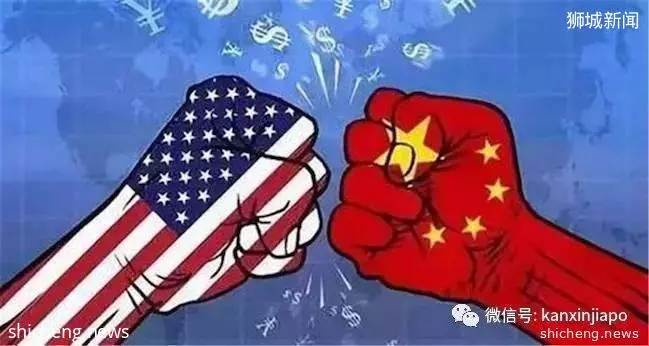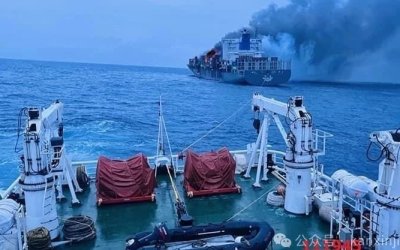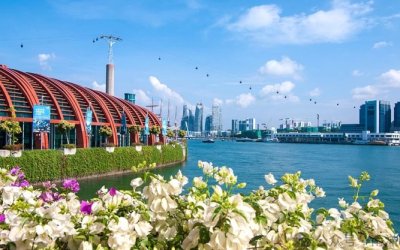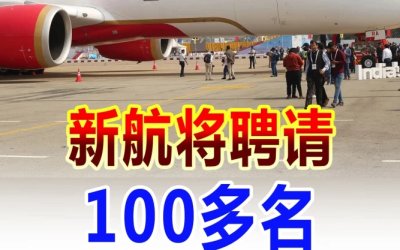4月18日,李顯龍在《華盛頓郵報》上發表《沒有人想要進行貿易戰》,以下為翻譯內容:
中美兩國之間的貿易摩擦已經醞釀一段時間了。但隨著特朗普政府宣布針對中國的進口物品徵收單方面關稅,一場貿易戰的威脅變得前所未有的清晰。

美國對此措施提供了廣泛的政治支持。之前主張讓中國加入世界貿易組織的美國企業現在覺得在中國開展業務使他們處於不利地位。
他們有依據地認為,競爭環境很不平衡,市場入口有限,投資受限,特別是金融和技術領域。中國以前GDP占世界總值的5%左右,當時制定的貿易安排和讓步措施在今天已經不太適用了,因為中國現在的份額已經上升到15%。
但單方面提高關稅並不是正確的解決方案。美國和中國之間的貿易戰絕不是無法避免的,但一旦爆發,它將嚴重破壞自二戰結束以來支撐全球繁榮的,以規則為基礎的多邊體系。世界各國,無論大小,都會被殃及。
我們相信貿易糾紛,應該在世貿組織的框架內得到解決。正如經濟學家所指出的那樣,在評估經濟關係時,最重要的不是一個國家與個別貿易夥伴建立的良好雙邊關係,而是與世界其他國家所建立的整體貿易平衡。
此外,造成國家貿易逆差的原因應該在國內尋找。貿易逆差是一個國家消費多於產量的結果,它既不是因貿易限制造成,也不能以貿易限制解決。
中美兩國有著世界上最重要的雙邊關係。這兩個國家都受益於一個開放的,以規則為基礎的國際秩序和多邊貿易體系。這促進了亞太地區的經濟合作,並加深了亞洲、美國、歐洲和世界其他地區的互相依賴性。
亞洲是美國商品和服務增長最快的出口市場。作為全球第二大港口和第四大金融中心,新加坡是連接美國和亞洲經濟的全球樞紐。我們是一個規模較小的開放經濟體,貿易總量是我們GDP的三倍多。世界上兩個最大的兩個經濟體之間的貿易戰將對新加坡產生巨大的負面影響。
自2001年中國加入世貿組織以來,它在國際經濟的地位和全球貿易的比重大幅增長。這改變了整體的戰略平衡格局。我們也提出合理的期望,希望中國可以進一步開放市場,為多邊貿易體系做出更多貢獻。
中國已宣布致力於維護開放性和多邊主義。亞洲基礎設施投資銀行和「一帶一路」是中國加強貿易和投資關係,加強一體化和相互依存的兩大努力。在最近的博鰲論壇上,XI主席宣布了進一步開放中國金融業,提高外商投資自由度,保護智慧財產權和降低汽車進口關稅的計劃。特朗普總統已經承認並歡迎這些舉措。我們期待看到這些表態落實為實際行動,並取得成果。
雖然大多數亞太國家繼續追求貿易和經濟自由化——例如,通過跨太平洋夥伴關係協議和區域全面經濟夥伴關係協議——這些倡議無法彌補貿易戰所造成的損害。
除了經濟損失外,中美兩國之間的緊張關係將使他們在重要議題上的合作變得困難,例如,半島無核化、區域安全、防止核武器擴散和氣候變化等。上述的所有問題,沒有兩國的充分參與,都無法解決。如果任何一個爭端升級並破壞中美兩國之間的關係,那麼全世界將面臨災難性的後果。
中美兩國之間的競爭是意料之中的。但是,這種競爭是否發生在相互依賴和被普遍接受的國際規則框架內,結果是截然不同的。不管怎麼說,最關鍵的還是戰爭與和平以及世界的安全與穩定。無論是美國,中國和世界其他國家都有太大的風險。
以下為英文原文:
Trade friction between China and the United States has been brewing for some time. But with the Trump administration’s announcement of unilateral tariffs on imports, targeted at China, the specter of a trade war has never been clearer.
There is broad political support in the United States for such measures. American businesses that had previously advocated China’s accession to the World Trade Organization now feel disadvantaged doing business in China. They feel, with some justification, that the playing field is uneven, market access is limited and investments are restricted, especially in the financial and technology sectors. Trade arrangements and concessions made in the past when China was about 5 percent of the world’s gross domestic product are less readily accepted today with China’s share rising to 15 percent.
But unilateral tariffs are not the correct solution. A trade war between the United States and China is far from inevitable, but if one breaks out, it will gravely undermine the rules-based multilateral system that has underpinned global prosperity since the end of World War II. Countries around the world, big and mall, will be hurt.
We believe trade disputes should be resolved within the WTO framework. As economists have pointed out, when assessing economic relationships, what matters is not a country’s bilateral trade balance with a specific trading partner but its overall trade balance with the rest of the world. Furthermore, the cause of a country’s trade deficit lies at home. A trade deficit is the result of a country consuming more than it produces, and it is neither caused nor cured by trade restrictions.
The United States and China share the most important bilateral relationship in the world. Both countries have benefited from an open, rules-based international order and multilateral trading system. This has fostered economic cooperation within the Asia-Pacific region and deepened interdependence among Asia, the United States, Europe and the rest of the world.
Asia is the fastest-growing export market for U.S. goods and services. As the world’s second-busiest port and fourth-largest financial center, Singapore is a global hub that connects the economies of the United States and Asia. We are a small, open economy with trade flows more than three times our GDP. A trade war between the two largest economies in the world will have a big, negative impact on Singapore.
Since China joined the WTO in 2001, its weight in the global economy and its share of world trade have grown enormously. This has shifted the overall strategic balance. It has also raised reasonable expectations for China to liberalize its markets further and contribute more to the multilateral trading system.
China has declared its commitment to upholding openness and multilateralism. The Asian Infrastructure Investment Bank and the 「Belt and Road Initiative」 are two major efforts by China to strengthen trade and investment ties, and to enhance integration and interdependence. At the recent Boao Forum for Asia Annual Conference, President Xi Jinping announced further plans to open up China’s financial sector, liberalize foreign investment rules, protect intellectual property rights and lower tariffs on automobile imports. These moves have been acknowledged and welcomed by President Trump. We look forward to seeing these steps elaborated, implemented and bearing fruit.
Although most Asia-Pacific countries continue to pursue trade and economic liberalization — for example, through the Trans-Pacific Partnership and the Regional Comprehensive Economic Partnership — these initiatives will not compensate for the damage caused by a trade war.
Beyond the economic loss, strained ties between the United States and China will make it harder for them to cooperate on other pressing issues such as the denuclearization of the Korean Peninsula, regional security, nonproliferation and climate change. None of these issues can be solved without the full participation of both countries. If any of these disputes escalates and destabilizes relations between the United States and China, the consequences for the world would be disastrous.
Competition between the United States and China is to be expected. But whether this competition takes place within a framework of interdependence and generally accepted international rules makes all the difference. Ultimately, what is at stake is war and peace, and the security and stability of the world. The United States, China and the rest of the world have too much at stake.
相關閱讀:
— END —
























